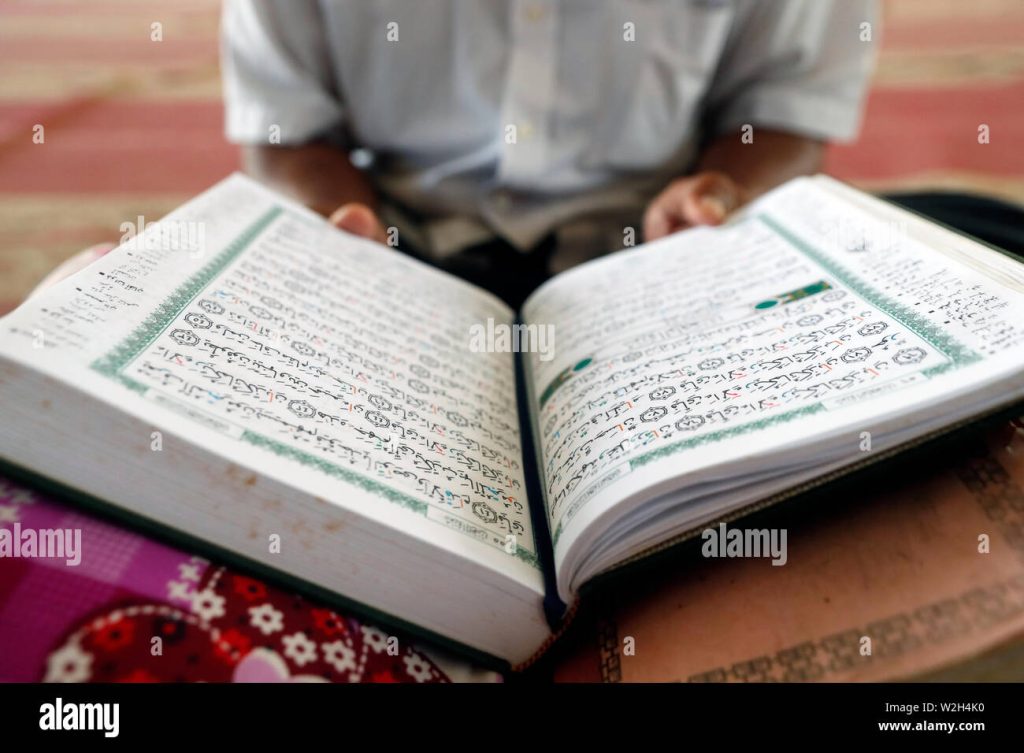Ramadan and the Art of Forgiveness: Healing Relationships
Ramadan is a holy month on the Islamic calendar, isn’t solely a period of prayer and reflection, but also a perfect time to be able to practice forgiveness. The act of forgiveness has an immense significance in Islam and, during this holy month people are urged by Allah to accept forgiveness for other people and, more importantly, to forgive people who have hurt them. This article we’ll explore the practice for forgiveness in Ramadan and examine how it functions as an effective healing tool for relationships. The Spiritual Significance of Forgiveness The connection between spiritual development Forgiveness is a vital aspect of spiritual development. When individuals perform actions in forgiveness, they are able to experience an immense sense of freedom and spiritual growth. Islam insists on the importance of allowing others to forgive to cleanse one’s heart and moving close to Allah. Please share and comment. Forgiveness and forgiveness teachings in Islam Islamic teachings are brimming with lessons about forgiveness. The Quran urges believers to forgive others in the same way that they would like to be granted forgiveness by Allah. The Hadith as well as the words and acts of the Muhammad (peace be upon him) and the Prophet Muhammad (peace be on his soul) also reinforce the notion of forgiveness as a virtue which can earn huge rewards in this life as well as in the afterlife. Ramadan Traditions and Forgiveness Special prayers for seeking forgiveness In the month of Ramadan, Muslims engage in extra prayers, begging for forgiveness as well as mercy. The special prayers offer the opportunity to reflect which allows people to reflect about their actions and request for forgiveness from God the Almighty. Reconciliation and acts of kindness Ramadan encourages a sense of kindness and compassion. Many people use this time to heal strained relationships by offering help to family and friends, offering acts of kindness and seeking to reconcile with those they might have disagreements with. Forgiveness as a Healing Mechanism Effect upon mental wellbeing Studies have proven that forgiveness can have positive effects on mental well-being. The resentments and grudges that we hold onto can lead to anxiety and stress, while forgiveness can boost emotional wellbeing and resilience. In Ramadan it is a time when giving forgiveness becomes a method of self-care. Studies of transformative relationships There are plenty of real-life examples of relationships that have been transformed by forgiveness. It doesn’t matter if it’s a family conflict or a long-running dispute between family members, forgiveness can lead to healing, restoring trust and building closer connections. Challenges in Forgiveness Beating pride and ego The process of forgiveness can be a challenge particularly when ego and pride are in the way. This section focuses on the most frequent difficulties to forgiveness and provides suggestions on how people can overcome these obstacles and develop an open heart. Resolving past wounds Resolving past wounds is a vital aspect of forgiveness. It is necessary for people to face the trauma they’ve suffered and then take steps to let go. Strategies to help them navigate this delicate journey will be covered in depth. Forgiving Oneself During Ramadan Self-forgiveness is a way to be accepted. In the quest for forgiveness, it’s important not to forget yourself. This chapter highlights that self-forgiveness plays a crucial role in allowing forgiveness, recognizing mistakes and allowing personal growth to take place in Ramadan. Ramadan. Personal development and self-discovery Ramadan is a perfect time to reflect and grow personally. Through self-forgiveness, people are able to unlock their potential to grow and lead an enlightened and fulfilling life. Community Forgiveness Initiatives Practices of collective forgiveness Community members often meet in Ramadan to participate in communal acts of forgiveness. This may include prayers in communal settings for forgiveness, events organized encouraging unity, and other initiatives that aim to resolve disputes within communities. Community events that promote forgiveness The section highlights events where communities actively encourage forgiving, this segment highlights the positive effects of forgiveness programs in fostering peace and understanding between diverse groups. Forgiveness Beyond Ramadan Incorporating forgiveness into your daily life While Ramadan acts as an opportunity for forgiveness however, the practice should go over the entire month. This article outlines ways to integrate forgiveness into your daily routine to create a lasting society of compassion and understanding. The long-term benefits of keeping forgiveness A positive attitude towards forgiveness will have long-lasting effects on your relations, health overall health. The article focuses on the lasting benefits of forgiveness, and encourages readers to incorporate it into a habit for the rest of their lives. The Role of Empathy in Forgiveness Understanding the perspectives of others Empathy plays an essential role in the process of forgiveness. This article focuses on how important it is to understand other peoples viewpoints, encouraging empathy and the way it aids in being able to forgive. Empathy can be a catalyst to forgiveness Connecting empathy with forgiveness, this section of the article examines the ways that cultivating empathy can act as a catalyst for forgiveness the self and others. Educational Approaches to Forgiveness The teaching of forgiveness in schools as well as in the communities Education is an effective method to instill values. This article focuses on the necessity of integrating forgiveness education into schools and communities, forming the next generation on a foundation of compassion and empathy. Promoting a culture of compassion Beyond individual education, establishing an attitude of compassion is vital to social progress. The article explains how the development of empathy on a larger scale helps to increase the amount of forgiveness within society. Cultural Perspectives on Forgiveness A variety of cultural beliefs regarding forgiveness The concept of forgiveness transcends the boundaries of religion. This section explains how different ways of looking at forgiveness, focusing on the commonalities and differences between their approaches. Common threads of forgiveness that run through all the different cultures In spite of cultural differences however, there are common threads that connect the world of forgiveness. This article explores common elements in forgiveness across different cultures, encouraging unity and understanding. Media Influence on Forgiveness Positive depictions of forgiveness Media has a major influence on the perceptions of …
Ramadan and the Art of Forgiveness: Healing Relationships Read More »



